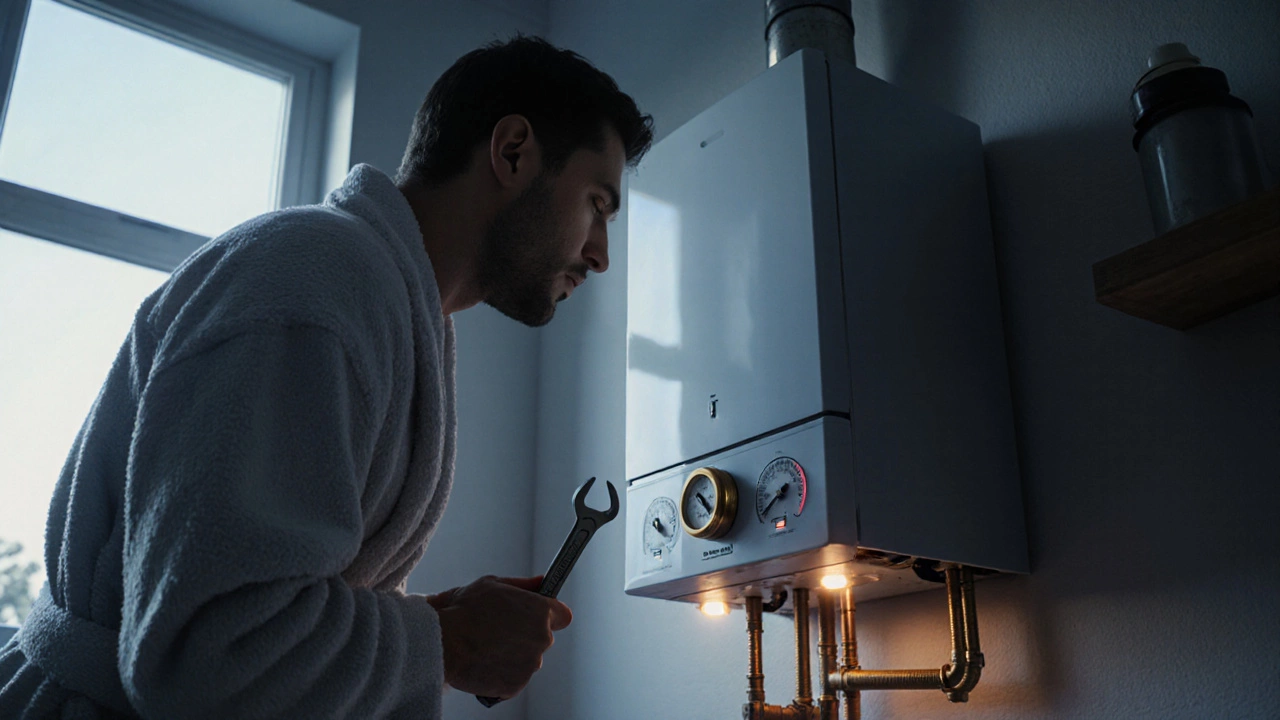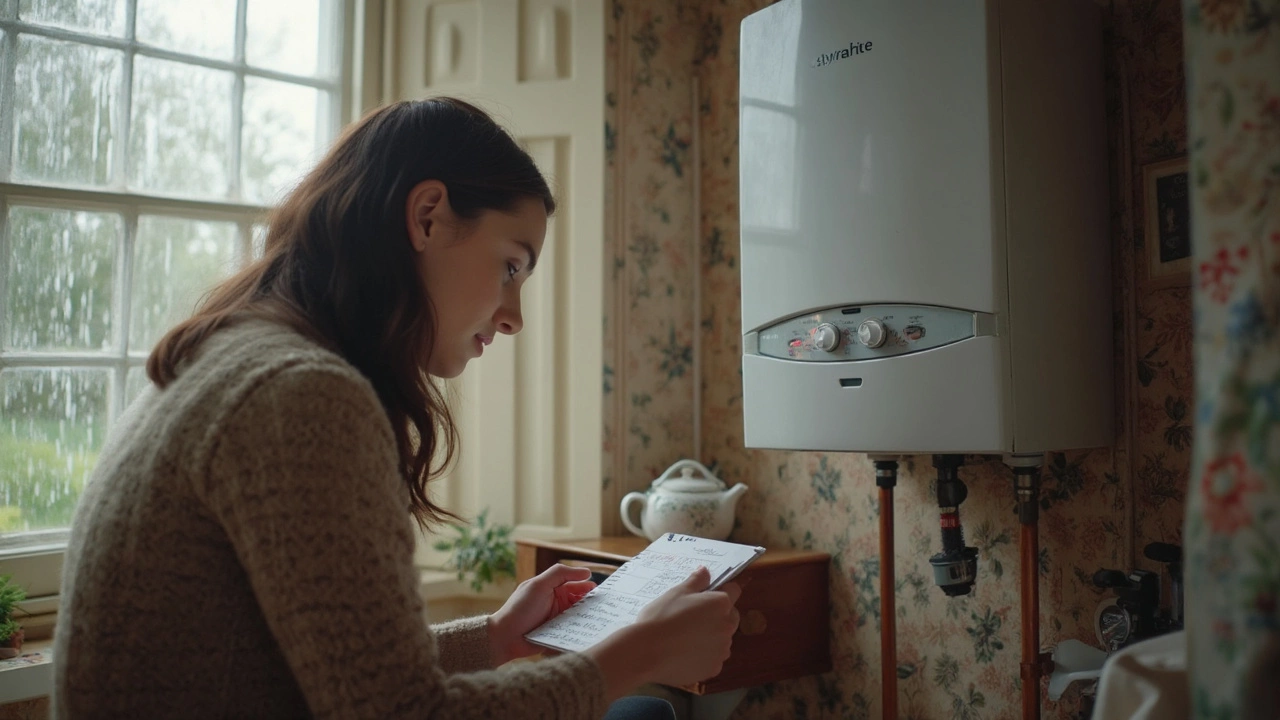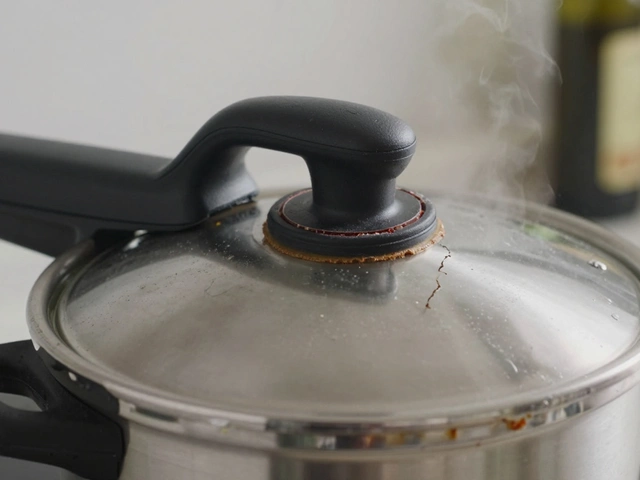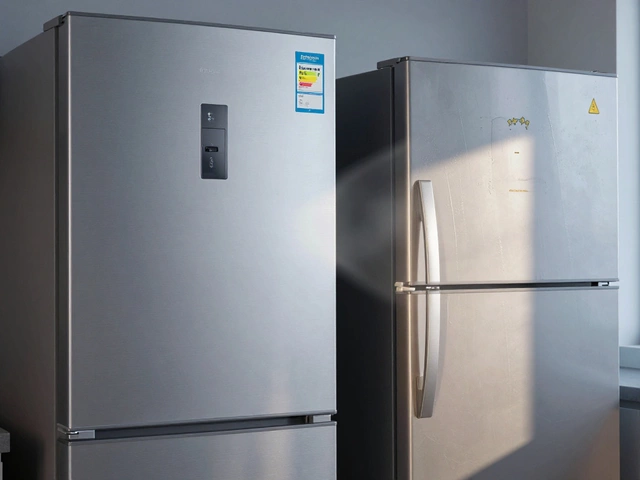Dealing with a problematic boiler is one of those issues homeowners dread but inevitably face. The question is, who do you call to fix it? It's not as straightforward as it might seem, given the variety of professionals out there claiming they can handle the job. Understanding the differences between technicians, plumbers, and general repair services is key to ensuring your boiler gets the precise treatment it needs.
A boiler humming along smoothly is the unsung hero of a comfortable home, especially during the cold months. Yet, as soon as it falters, it demands immediate attention. Knowing who to reach out to for repairs involves more than just picking the first name you find online. There are certifications, expertise, and different costs to consider. Dive into this guide to arm yourself with the knowledge to make an informed decision when choosing a service provider for your boiler needs.
- Recognizing Common Boiler Issues
- Choosing Between Technicians and Plumbers
- Certification and Licensing
- Cost Considerations
- Regular Maintenance Tips
Recognizing Common Boiler Issues
A boiler on the fritz is never a good sign, yet it's not uncommon for these hardworking devices to run into issues from time to time. Recognizing the warning signs early can often save you from a full-blown breakdown, which might lead to an expensive repair or even a replacement. One prominent problem is hearing unusual noises. If your boiler is making clanking or gurgling sounds, it's trying to tell you something isn’t quite right. This noise could be due to air trapped in the system or low water pressure. Sometimes, you'll find that the pilot light keeps going out. This issue could point to a malfunctioning thermocouple or an accumulation of debris blocking the gas flow. Each scenario demands a distinct approach, and understanding these scenarios can aid in better communication with your service provider.
Another common issue is the dreaded cold radiators. Many homeowners experience this particular problem, especially during winter. Cold spots in radiators often arise from trapped air or sludge build-up within the system. Bleeding your radiators might seem like a chore, but regularly doing so can significantly improve the efficiency of your boiler and heating system. You might ask yourself, 'Why is my boiler leaking?' The causes of leaks can be varied, from corroded pipes to issues with the pump inside. Spotting a leak early on is vital, as ignoring it can lead to serious water damage over time. The pressure settings should also be monitored. A boiler with too low or too high pressure usually indicates underlying issues.
Importance of Addressing Issues Early
Every day your boiler operates at a compromised state, the closer you edge towards a major malfunction. A startling statistic from the Energy Saving Trust suggests that addressing minor issues when they first appear can cut repair costs by as much as 50%. So being savvy about the signs keeps both your home warm and your wallet intact. Early repairs often prevent further damage that could trigger more extensive complications. For instance, resolving a pressure imbalance quickly can prevent significant system failures down the line. Don't wait until you're bundling up indoors just to stay warm, address those early twinges and twangs from your boiler. It not only preserves the machine’s longevity but also saves you from the biting cold of unexpected failures.
"A stitch in time saves nine," a wise phrase often attributed to Benjamin Franklin, captures the essence of diligent boiler maintenance perfectly. Catching potential problems early can most certainly prevent larger ones from snowballing.
By learning to recognize these common problems, you prepare yourself to act swiftly and effectively, ensuring your boiler runs as efficiently as possible. And though it may seem daunting at first, keeping an ear and eye out for these warning signs will make it second nature over time. With routine checks and a basic understanding of what might go wrong, you can ensure your boiler stays in peak condition, ready to face whatever the weather throws your way.
Choosing Between Technicians and Plumbers
When the boiler hiccups, the first instinct is to get it back to working order quickly, but knowing whether to call a technician or a plumber can make a big difference. A technician specifically trained in boiler repair often tackles issues related to the electronic components, such as control systems and thermostats. These professionals are adept at diagnosing problems that require a deep understanding of the boiler’s mechanics. In contrast, plumbers might be the go-to for issues involving water supply, radiators, or pipework connected to the boiler system. Each professional brings a unique skill set, and choosing wisely can save both time and money in the long run.
A technological advance in some modern boilers can blur these lines. For instance, hydronic heating systems, which rely heavily on plumbing but also involve intricate boilers, demand a professional who understands both fields. Thus, hiring a technician-plumber hybrid with dual expertise might be necessary, particularly if your home employs such a system. A survey by the Institute of Plumbing and Heating Engineering shows that 65% of households initially call the wrong professional for their boiler issues, indicating a knowledge gap. Consulting your boiler’s warranty or maintenance guide can offer some clues. However, it's often better to call and describe the problem to a professional, who can then advise on whether they are the right person for the job.
"Choosing the right professional can prolong the lifespan of your boiler and enhance home safety," says Jamie Green, a noted home maintenance expert. "Many people aren't aware that improper repairs by unqualified individuals can negate warranties or lead to costlier fixes down the line."
Knowing the difference also involves recognizing certifications and accreditations, which can offer peace of mind. Many countries have regulatory bodies overseeing heating specialists. In the UK, look for Gas Safe registered engineers, whereas in the US, industry organizations like NATE (North American Technician Excellence) credential competent technicians. In addition to personal qualifications, consider companies that offer both plumbing and boiler repair services—they often employ individuals skilled across areas, providing a one-stop solution. This dual-service approach not only simplifies the hiring process but also ensures that no facet of the repair is overlooked, blending the best of both worlds for a comprehensive service experience.
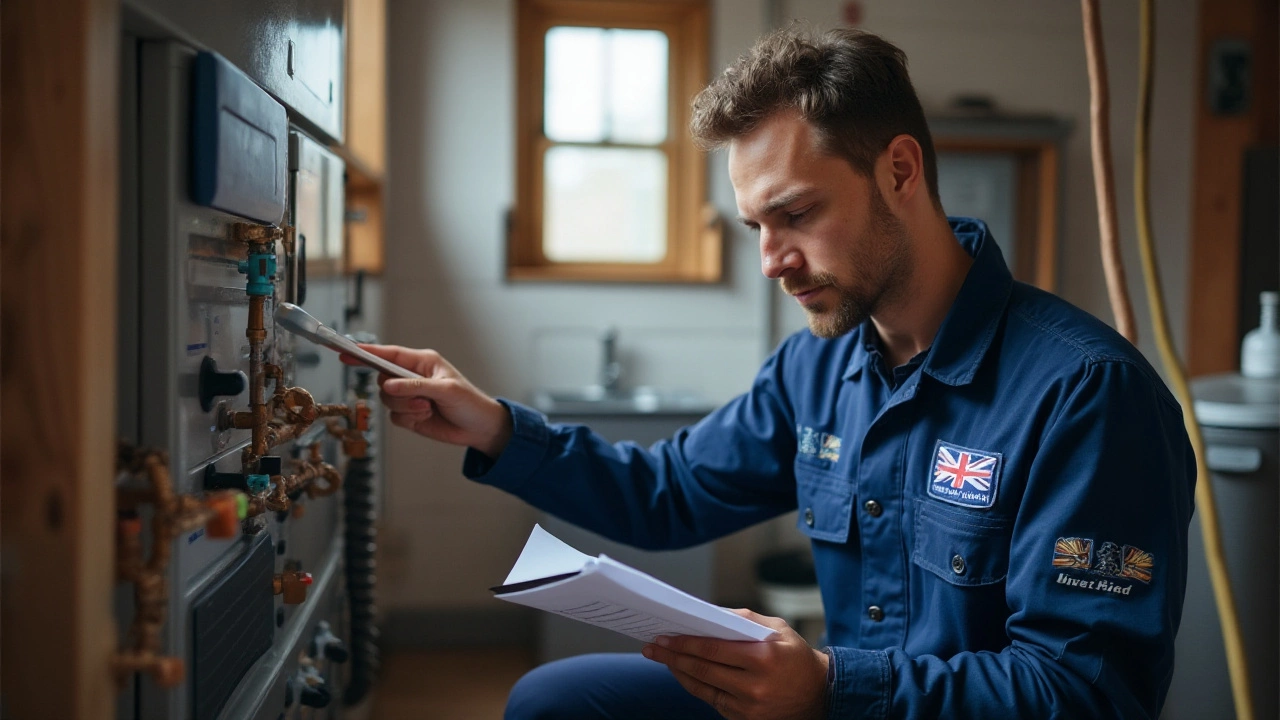
Certification and Licensing
When it comes to choosing a professional for your boiler repair needs, certification and licensing are critical factors. A certified technician has undergone rigorous training to ensure they have the skills and knowledge necessary to perform boiler maintenance safely and effectively. In many countries, technicians are required to hold a specific license that demonstrates their competence and familiarity with the latest industry standards. This not only provides peace of mind to homeowners but also ensures that repairs comply with local regulations, which can vary significantly depending on where you live. It's no trivial matter; the right credentials can mean the difference between a temporary fix and a long-term solution.
What's more, not all certificates are created equal. In the UK, for example, you should look for a Gas Safe registered engineer, as it’s a legal requirement for anyone working on gas appliances. Similarly, in the United States, certifications such as NATE (North American Technician Excellence) or an ASME certification (American Society of Mechanical Engineers) serve as proof of a technician’s expertise. These accreditations are not just for show—they embody a commitment to high standards of service and safety. As the saying goes, 'An ounce of prevention is worth a pound of cure,' which underscores the importance of hiring someone who knows the ins and outs of your boiler system.
Of course, certifications don't just benefit homeowners. They also allow technicians to keep up with emerging technologies and changing industry practices. With advancements in heating systems, including more energy-efficient boilers, having the most up-to-date knowledge is crucial for any technician aiming to provide top-notch service. This ongoing education and certification process help maintain a high level of professionalism within the industry. As one seasoned technician put it,
"Knowledge isn't power until it is applied correctly, especially when it comes to handling complex systems like boilers."
From a financial perspective, hiring a licensed professional might seem a bit more costly upfront, but it usually saves money in the long run. Unqualified work can result in frequent callbacks, inefficient energy use, or even hazardous situations, like gas leaks or system failures. Not to mention, if you ever need to make a claim on your home insurance related to your boiler, having records of servicing by a certified professional could prove invaluable. It's always smarter to pay for qualified service once than to pay for poor service repeatedly.
When evaluating potential service providers for boiler repair, don’t hesitate to ask to see their credentials. A trustworthy technician will have no qualms about proving their qualifications. Additionally, check for any online reviews or testimonials from previous clients; these can offer insights into their reliability and customer satisfaction levels. In the end, the right combination of certification and customer feedback often reveals the best option for maintaining your essential home heating system.
Cost Considerations
When it comes to boiler repair, cost is a significant factor that homeowners must take into account. It's not uncommon for repair costs to vary widely depending on several key factors. The nature of the problem, the type of boiler, and even the geographical location can all influence the final bill. Knowing the typical expenses can prepare you for what's ahead, ensuring no surprises when it's time to settle the payment. From minor repairs involving basic parts to more comprehensive overhauls, understanding the range of costs can guide your decision-making process.
Typically, a minor boiler repair can set you back anywhere from $150 to $400. This range might cover simple issues like a faulty thermostat or a pressure valve replacement. On the other hand, more severe problems such as a damaged heat exchanger or water pump may cost upwards of $1,000. It's crucial to have an idea of these probable expenditures so you can weigh the pros and cons of repair versus replacement. Age and model matter too; older boilers might require parts that are obsolete or expensive to fabricate, driving up repair costs unexpectedly.
Boiler maintenance is another crucial element that can influence your repair costs. Regular, preventive checks can often mitigate larger issues down the line, catching small problems before they turn into pricey catastrophes. A yearly service appointment may cost around $100 to $200, but the peace of mind it brings is invaluable. Investing in maintenance is akin to purchasing an insurance policy for your boiler, ensuring longevity and preventing sudden failures during the coldest months of the year.
"Regular maintenance is the key to keeping your boiler running efficiently and safely, as pointed out by the experts at the energy advice service, Energy Saving Trust," notes Maria Gonzales, an HVAC consultant. "It's a small price to pay for the comfort and security of a warm home during winter."
Geography also plays a part in the cost of servicing your boiler. Urban areas, particularly those with a higher cost of living, might charge more compared to rural locations. Competition among service providers also varies between regions, impacting pricing. It’s wise to get quotes from multiple heating technicians to ensure you’re getting a fair deal. Don’t forget to consider hidden costs like call-out fees, which might be applicable if a technician inspects your boiler but you decide not to proceed with their services.
Lastly, consider the certification and reputation of the service provider. Opting for a certified technician often means a higher upfront cost, but it frequently results in better, more reliable repairs. Good professionals are transparent about their pricing and often provide detailed breakdowns of costs and work scope. It's wise to read reviews, ask for credentials, and seek recommendations before committing to a service. In doing so, you ensure that your boiler, a vital component of home comfort, receives the best care at a reasonable cost.
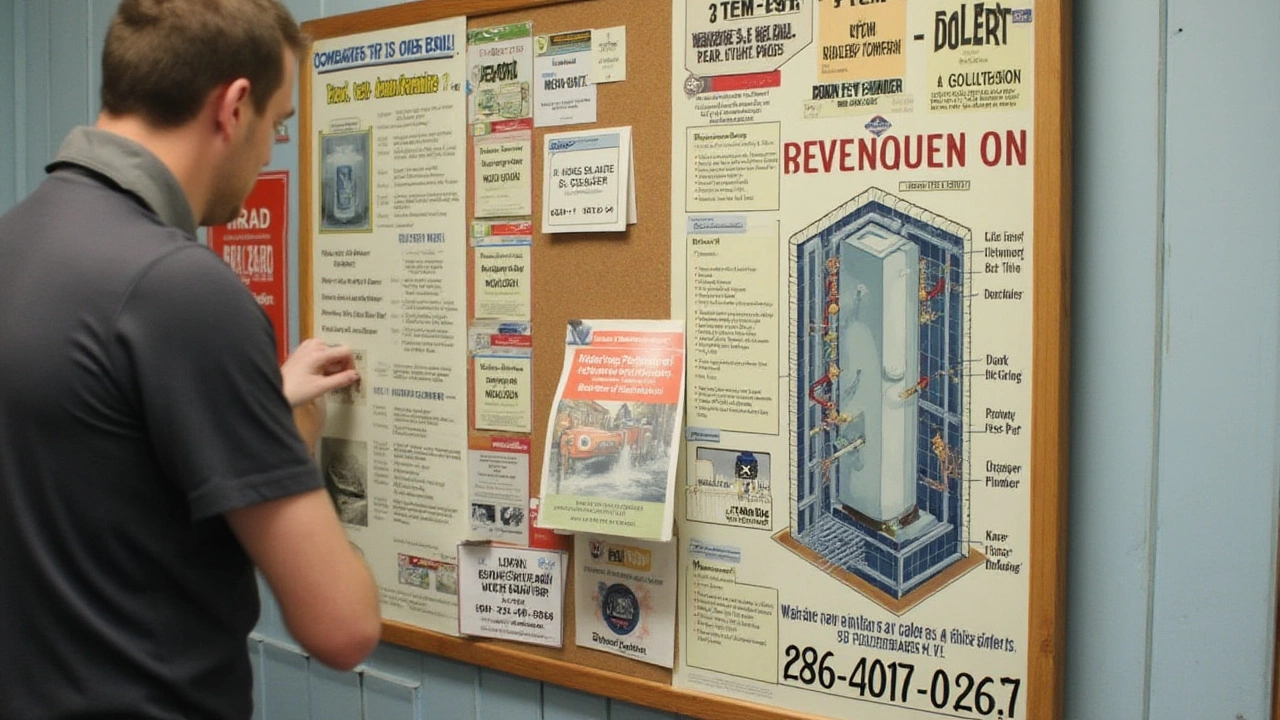
Regular Maintenance Tips
When it comes to your boiler, the old saying 'an ounce of prevention is worth a pound of cure' rings especially true. Routine maintenance is the key to ensuring that your boiler operates efficiently and lasts for many years. One of the most fundamental steps in boiler maintenance is checking for leaks regularly. A minor leak might not seem like a big deal at first, but over time, it can lead to major issues, including corrosion and reduced efficiency. Additionally, these leaks can sometimes cause pressure imbalances within the system, leading to potential boiler failure if not addressed promptly.
Beyond leaks, it's crucial to bleed your radiators every so often. Trapped air can cause radiators to become less effective, reducing the overall efficiency of your heating system. Bleeding radiators is a simple process that can be done with a radiator key; it involves releasing the trapped air, allowing the hot water to circulate freely. For an optimal performance, it's also advisable to have a professional inspection done annually. This might seem like an unnecessary expense at first glance, but this yearly check can catch any small issues before they develop into costly repairs. In fact, according to the Energy Saving Trust, a well-maintained boiler is up to 12% more efficient, highlighting the financial benefits of regular maintenance.
"Proper maintenance not only extends the lifespan of your boiler but also ensures the safety of your home," says Tom Williams, an energy efficiency expert.Another significant step is to monitor the boiler's pressure. Generally, your boiler's pressure gauge should read between 1 and 1.5 bars when the system is cold. If the pressure finds itself outside this range, you might need to adjust it. While it's a task that homeowners can often manage themselves, if in doubt, always consult a professional. It can help you dodge more serious issues tied to high pressure, such as leaks and system failures.
To round off your regular maintenance routine, consider insulating your pipes, especially those running through colder, unheated sections of the home. Pipe insulation helps keep the water inside the pipes from freezing, meaning it has to work less hard to heat your home. During the winter months, this can be incredibly beneficial, reducing the risk of frozen pipes that could potentially burst. Another benefit of insulated pipes is energy conservation, which in turn lowers heating costs. It's small tweaks like these which can mean the difference in both comfort levels and end-of-year costs.
The steps seem simple, but it's sticking to the routine that makes all the difference. Regular maintenance doesn't just keep unexpected repair bills at bay; it also plays a significant role in energy conservation, contributing positively to the environment. An efficiently operating boiler consumes less fuel, keeping carbon emissions to a minimum. As many environmental groups advocate, energy efficiency is a critical component in the fight against climate change.


